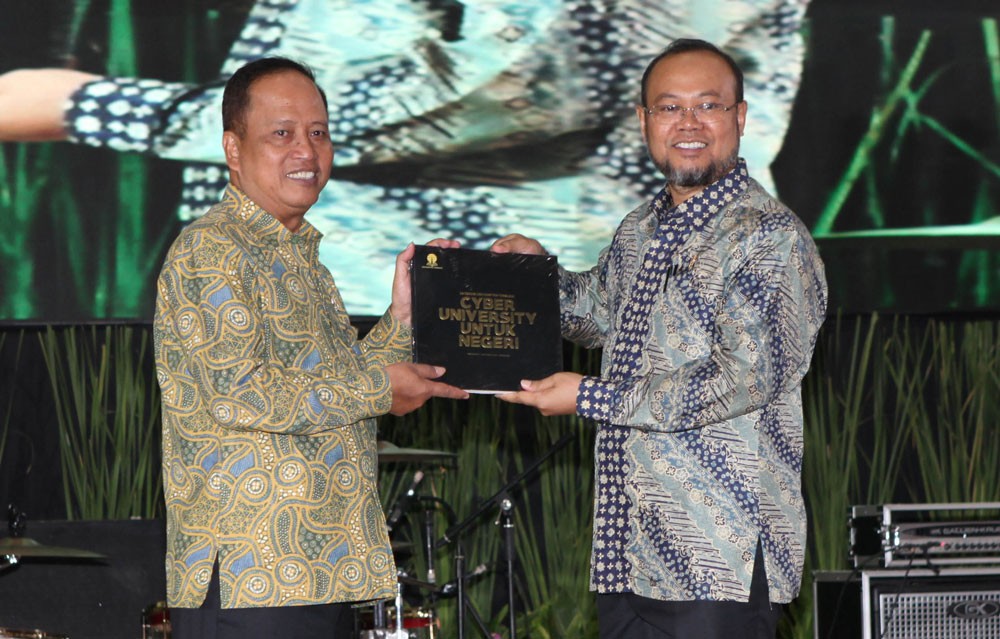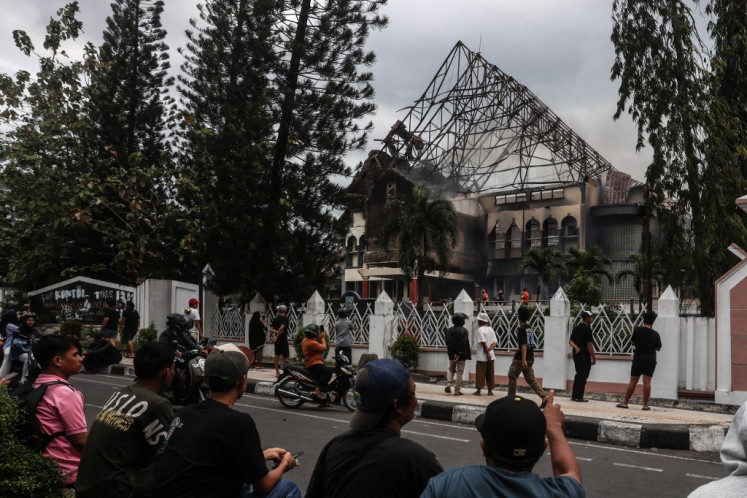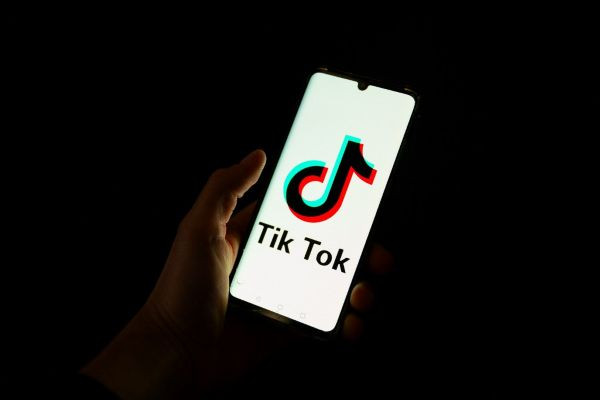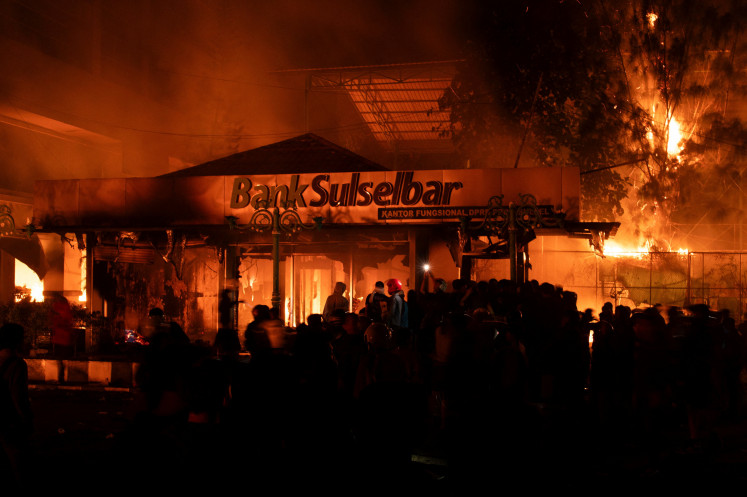Popular Reads
Top Results
Can't find what you're looking for?
View all search resultsPopular Reads
Top Results
Can't find what you're looking for?
View all search resultsUniversitas Terbuka: 34 years of providing Indonesians equal access to higher education
Change text size
Gift Premium Articles
to Anyone
 Anniversary gift: Rector of Indonesia Open University (UT) Ojat Darojat (right) hands over a book titled Indonesia Open University 34 years old: Cyber University for the Country to Research, Technology and Higher Education Minister Mohamad Nasir during the 34th Dies Natalis celebration at the UT Convention Center building in Banten, South Tangerang, on Tuesday. (JP/Arief Suhardiman)
Anniversary gift: Rector of Indonesia Open University (UT) Ojat Darojat (right) hands over a book titled Indonesia Open University 34 years old: Cyber University for the Country to Research, Technology and Higher Education Minister Mohamad Nasir during the 34th Dies Natalis celebration at the UT Convention Center building in Banten, South Tangerang, on Tuesday. (JP/Arief Suhardiman)
U
niversitas Terbuka (Open University, UT), which specializes in long-distance higher education services, has celebrated the 34th anniversary of its effort to provide Indonesians equal access to higher education, especially targeting students who live in the country’s remote areas unreachable by many higher education institutions.
Not only reaching out to Indonesians living in areas inaccessible by higher education institutions through its cyber learning services, UT has also expanded overseas, educating Indonesian migrant workers currently earning a living in 36 countries such as Hong Kong and South Korea, among others.
To mark this special occasion, the university organized a celebratory event on Tuesday at its convention center, inside its headquarters in Pondok Cabe, South Tangerang. It was attended by Research, Technology and Higher Education Minister Mohamad Nasir.
By making higher education available to Indonesians everywhere, UT has done its best to boost the gross higher education participation percentage in Indonesia.
The country pales in comparison to its regional neighbors in terms of the higher education participation rate According to data from the Research, Technology and Higher Education Ministry, Indonesia’s current gross higher education participation amounted to only 31.5 percent; compared to Singapore and South Korea, where higher education participation rates amounted to 80 and 92 percent, respectively.
According to Nasir, one factor causing Indonesia’s higher education participation rate to be low was the fact that a lot of Indonesians living in remote areas do not have access to any higher education institutions.
Existing state universities rarely have places to accommodate students coming from faraway places. “Currently, the ministry recorded that 2.181 million senior high and vocational school graduates in Indonesia cannot get a slot at state universities,” UT rector Ojat Darojat said.
“Therefore, we are proud to support the government’s mission to boost Indonesia’s gross higher education participation rate and improving Indonesian human resources quality by providing a long-distance learning curriculum, making higher education open to all,” Ojat said in his speech at the ceremony.
During his opening remarks at the anniversary celebration, Nasir accentuated UT’s role in closing the higher education gap in the country.
“Within 34 years, UT’s annual student enrollment capacity has increased from 20,000 when it first started to its current 60,000,” he said.
This journey is also chronicled in a book that the university launched to mark its 34th anniversary entitled 34 Years of UT: Being a Cyber University for the Nation. UT has a tradition of marking its anniversaries by launching a new book every year.
Currently, UT is strengthening its partnership with its local and international counterparts -- such as Maryland University, the University of California Los Angeles and the Massachusetts Institute of Technology in the United States, among others -- to refine its curriculum and learning software.
Responding to the fourth-wave industrial revolution, Ojat said UT had now shifted its focus to instilling higher-order thinking skills -- necessary to survive the digital revolution -- in its students. He added that UT was working with its partners to devise the best curriculum and learning devices to suit this.
“With UT’s help, I am confident that the government can meet its target of boosting Indonesia’s gross higher education participation rate to 35 percent by the end of 2018,” Nasir said.









